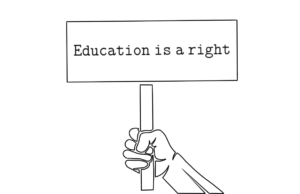Yaks: A Blessing or a Curse?
By Nina Chiuchiarelli on October 27, 2015- Tweet
-
- Pin It

Yik Yak has become the most popular app used for all the wrong reasons. Useful for cyber bullying, one cannot scroll down more than four anonymous “yaks,” without seeing a nasty comment posted towards another.
Yik Yak was first released in November of 2013 and quickly became one of the most downloaded apps in the United States. Originally intended for college students to anonymously post messages relevant to their school campus, the app allows any posted message to be seen by anyone within a five mile radius of their location. The app has quickly spread beyond the college environment, becoming one of the most talked about apps on the N.P. campus.
Those with the app are able to “yak” about what they think needs to be shared, and these “yaks” are at the ready for people to view, like, dislike, and anonymously respond. Yik Yak also has a feature that allows its users to view (but not respond to or like) “yaks” from college campuses they are not currently at, including as UCLA or USC.
To prevent its misuse, Yik Yak has put in place several policies to prevent bullying; these 11 polices can be found under the title “Unauthorized Activities” on Yik Yak’s official website.
Two of the policies state, “When using the App and/or any other part of the Services, you agree not to: Defame, abuse, harass, stalk, threaten, or otherwise violate the legal rights (such as rights of privacy and publicity) of others…(and should not) post any image or language that is obscene or offensive, threatening or demeaning to any individual or group.”
Despite the policies in place, the app is prone to mean and abusive comments that can circulate. Students continuously find ingenious ways to sidestep the guidelines Yik Yak has set in place.
These misuses can lead to harmful effects on the minds of those ridiculed by “yaks.” People comment ruthlessly without repercussions and single out people’s specific flaws and imperfections.
Yik Yak has a policy against saying people’s names, but students get around that by putting spaces between the letters in a name, writing “S a r a h” instead of “Sarah.”
The app continues to gain popularity, despite the abuse of power and cyber bullying written within it.
Although it may be enjoyable for some to tease their “friends” incessantly or talk about people behind their backs without any consequences, in reality the app is truly a waste of time and not worth the phone storage it takes up, or more importantly, the conflict and pain it creates.
You may also like...
Twitter
-
The Latest
-
April 22, 2024
America celebrates the 2024 total solar eclipse
-
April 22, 2024
Shangri-La Industries accuses COF of stealing
-
April 22, 2024
Car shows bring community together
-
April 22, 2024
Spring renews body and soul
-
April 22, 2024
Music Corner
-
April 22, 2024
Boys golf goes clubbing at the par
-
April 22, 2024
Girls’ softball begins with a bang
-
April 22, 2024
Setting a beat in the 805-Music Scene
-
April 22, 2024
Meta pays lobbyists for a possible TikTok ban
-
April 22, 2024
Construction begins on T.O. Ranch residential and retail
-
April 22, 2024
The Panther Prowler
The Panther Prowler is the official publication of Newbury Park High School, created and produced by Advanced Journalism students. The Panther Prowler is published every three weeks throughout the school year. Guest letters to the editor are welcome but must be signed.Twitter
Instagram
Copyright © 2014 Panther Prowler.


